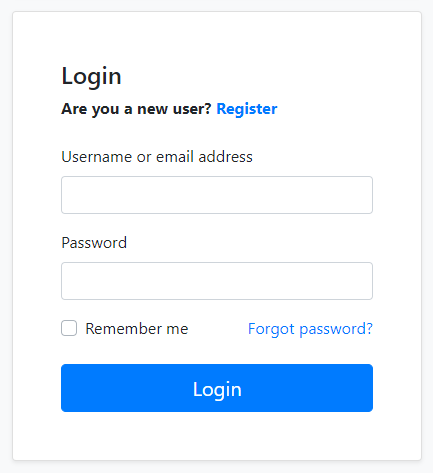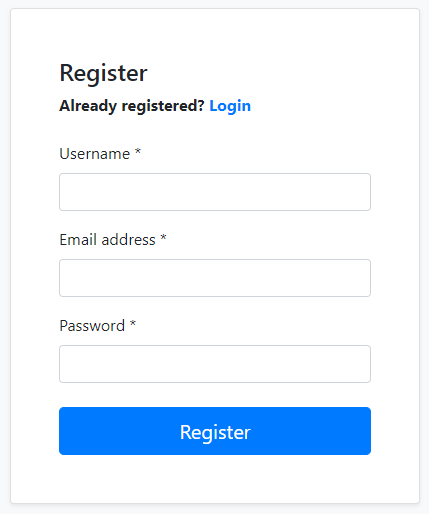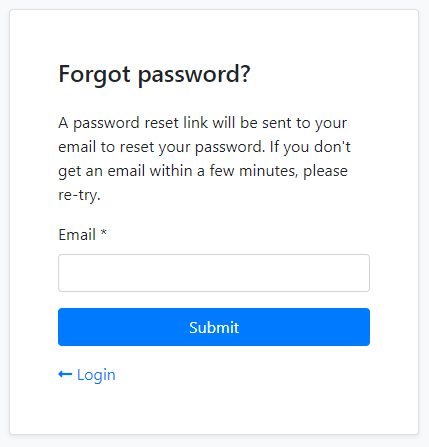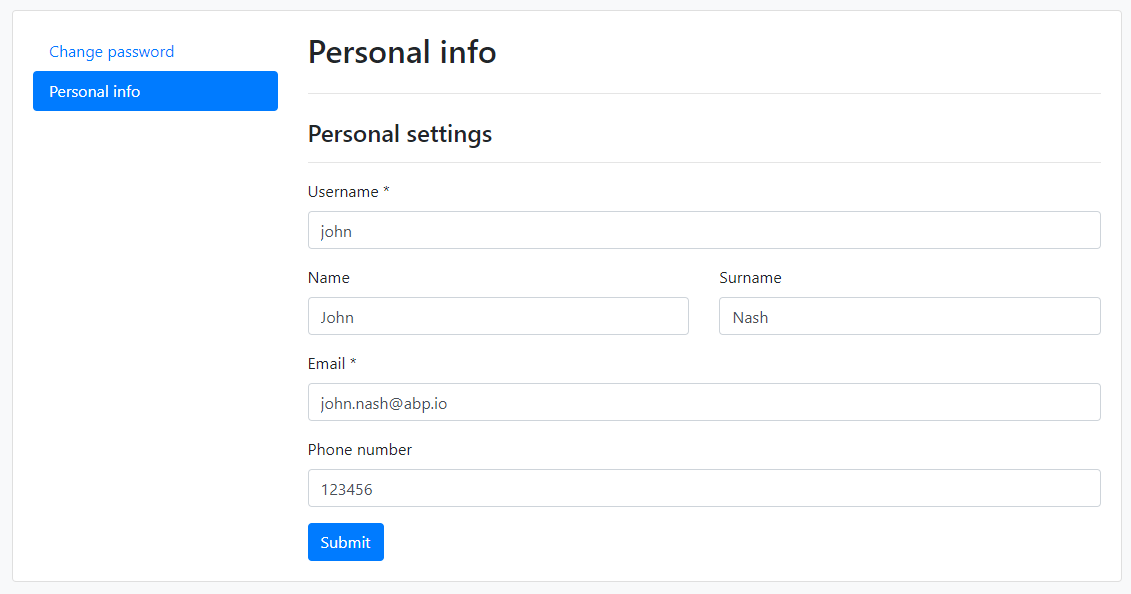Account Module
Account module implements the basic authentication features like login, register, forgot password and account management.
This module is based on Microsoft's Identity library and the Identity Module. It has IdentityServer integration (based on the IdentityServer Module) and OpenIddict integration (based on the OpenIddict Module) to provide single sign-on, access control and other advanced authentication features.
How to Install
This module comes as pre-installed (as NuGet/NPM packages). You can continue to use it as package and get updates easily, or you can include its source code into your solution (see get-source CLI command) to develop your custom module.
The Source Code
The source code of this module can be accessed here. The source code is licensed with MIT, so you can freely use and customize it.
User Interface
This section introduces the main pages provided by this module.
Login
/Account/Login page provides the login functionality.
Social/external login buttons becomes visible if you setup it. See the Social/External Logins section below. Register and Forgot password and links redirect to the pages explained in the next sections.
Register
/Account/Register page provides the new user registration functionality.
Forgot Password & Reset Password
/Account/ForgotPassword page provides a way of sending password reset link to user's email address. The user then clicks to the link and determines a new password.
Account Management
/Account/Manage page is used to change password and personal information of the user.
OpenIddict Integration
Volo.Abp.Account.Web.OpenIddict package provides integration for the OpenIddict. This package comes as installed with the application startup template. See the OpenIddict Module documentation.
IdentityServer Integration
Volo.Abp.Account.Web.IdentityServer package provides integration for the IdentityServer. This package comes as installed with the application startup template. See the IdentityServer Module documentation.
Social/External Logins
The Account Module has already configured to handle social or external logins out of the box. You can follow the ASP.NET Core documentation to add a social/external login provider to your application.
Example: Facebook Authentication
Follow the ASP.NET Core Facebook integration document to support the Facebook login for your application.
Add the NuGet Package
Add the Microsoft.AspNetCore.Authentication.Facebook package to your project. Based on your architecture, this can be .Web, .IdentityServer (for tiered setup) or .Host project.
Configure the Provider
Use the .AddFacebook(...) extension method in the ConfigureServices method of your module, to configure the client:
context.Services.AddAuthentication()
.AddFacebook(facebook =>
{
facebook.AppId = "...";
facebook.AppSecret = "...";
facebook.Scope.Add("email");
facebook.Scope.Add("public_profile");
});
It would be a better practice to use the
appsettings.jsonor the ASP.NET Core User Secrets system to store your credentials, instead of a hard-coded value like that. Follow the Microsoft's document to learn the user secrets usage.




